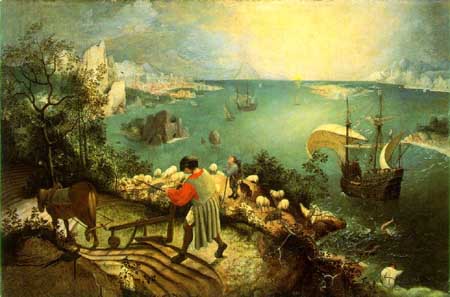by Ellen Scordato
At least, that’s what this article in the American Thinker proposes. In “Tiger, the Buddha, and Me,” writer Robin of Berkeley sets out to prove “Why the Buddha was more Mark Levin than Saul Alinsky.”
She asks, “So who was the Buddha,
anyway? Was he like Alinsky, steamrolling social justice through by any
means necessary? Or was he a conservative, teaching prudence, ethical
behavior, and accepting the world as it is?“
After a series of quotes and assertions, Robin concludes the Buddha’s teachings on personal responsibility place him squarely in the modern Conservative camp.
And the comments begin to fly back at her! I’m fascinated by
how easily we modern thinkers slot Buddhism into the currently popular model of duality: liberal vs conservative. God vs atheism. These poles determine much of current public cultural and social debate. Whatever concept we have at hand, we deposit neatly in one slot or the other. On/off, I/O, that’s how computers work and, very evidently, how we work too.
Robin states that conservatives believe in personal responsibility as the basis of ethical action, speech, and thought in this world.; Buddha did too, and so he’s a conservative.
Wait a minute, how did liberals get labeled as NOT supportive of personal responsibility? That seems a bit ridiculous to me.
The author of the American Thinker article states:
“Here’s my favorite
story about the Buddha: A grieving young mother from a poor background
begged him to revive her dead son. Not only was she heartbroken, but
she feared her husband’s wealthy family would punish and shun her for
the child’s death.
Buddha promised to bring the boy back to life if she returned with a
mustard seed from a home where death had never visited. She thanked him
profusely and set off for town.
young mother knocked on door after door and heard heartbreaking stories
of loss. Finally, she grasped the Buddha’s teaching: that sorrow is a
part of life. She returned, bowed deeply to the Buddha, and asked him
to help her bury her child.
if the Buddha were an Alinskyite, the story would have ended
differently. The Buddha would have become enraged by all the social
injustices and organized a protest at her family’s house. He might even
have sent in his goon squad to scare the crap out of them.)”
I had to laugh at that. It’s one of my favorite stories too, but it seems to point out that humans share the basic state of humanity; that we are going to die. That we share common experience. No one is exempt, no matter how “personally responsible” they are.
What is the jump from a recognition of our common human condition to her portrait of an “Alinskyite”? I don’t see the connection, frankly.
Too often we set up straw men as those on the other side of the debate and knock them down. Straw men that have no relationship to the real people on the other side of the debate. We love to make up concepts like liberal and conservative and knock them down. And frankly, I think that’s what Robin of Berkeley is doing here.
But I’d love to hear what others think of this article. Basically, it amused me that the writer arrogated the idea of personal responsibility to conservatives while denying that liberals endorse personal responsibility, too.
Take a current “liberal” position, a green one: be responsible for your own energy use. Don’t waste stuff. Sounds pretty “conservative” to me. Let’s discuss.

